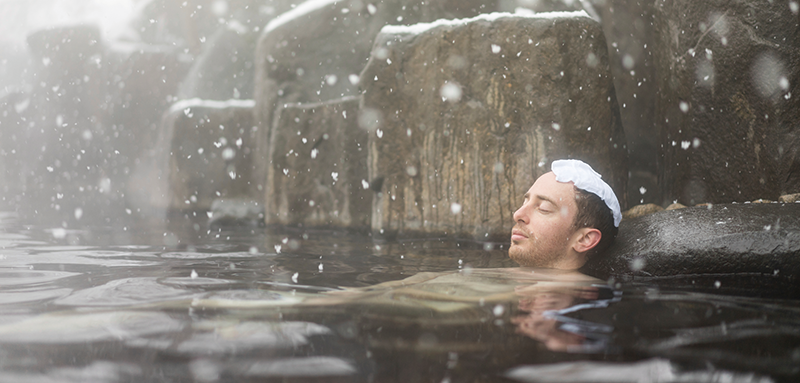By Matt Klampert
The newly renovated Yukigunikan has just reopened in the town of Yuzawa. This museum is the best place to learn about the history and culture of both Yuzawa and YUKIGUNI, as popularized by the Nobel prizewinning author YASUNARI KAWABATA. Starting with the famous passage “The train came out of the long tunnel into the snow country,” YASUNARI KAWABATA and his novel Snow Country (YUKIGUNI in Japanese) helped put the town of Yuzawa on the map, as travelers from both within Japan and around the world found themselves overcome with curiosity to see the real-life setting of the fictional love story between Tokyo bourgeoisie Shimamura and provincial geisha Komako. It has now been over 75 years since the novel’s publication, in which time the name “Yukiguni” has become as closely associated with the town and the surrounding locales as to KAWABATA’s novel itself.
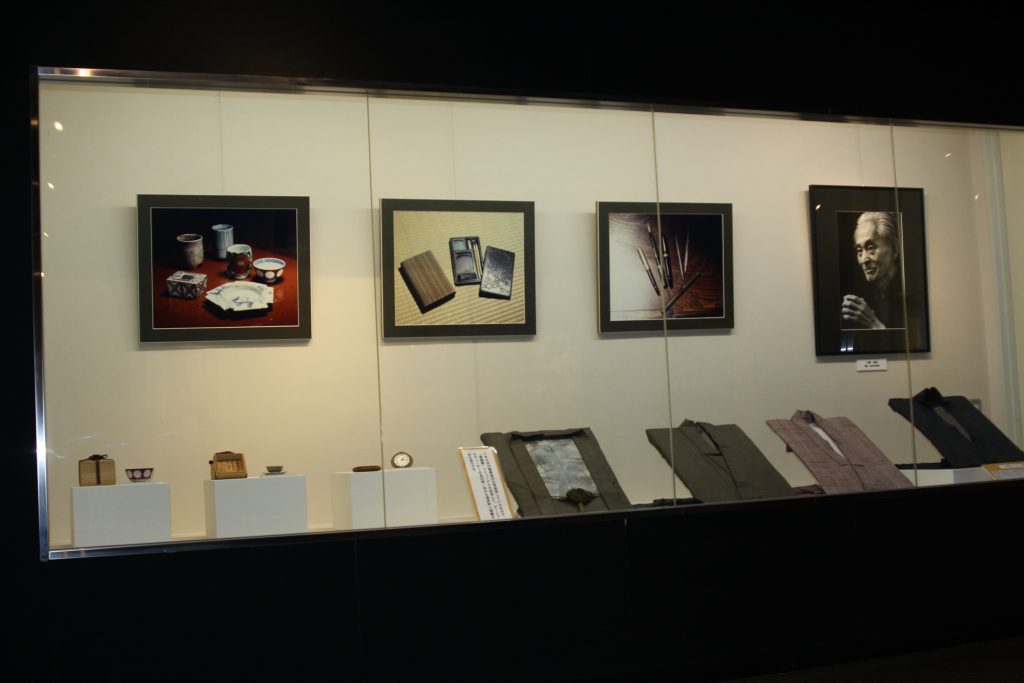
All about Yasunari Kawabata – the acclaimed author of Snow Country
YASUNARI KAWABATA is among the most important Japanese novelists of the 20th century. YASUNARI KAWABATA first came to prominence soon after graduating university with his novel The Izu Dancer in 1926. As a young author he helped found the “Neosensualist” movement that included Riichi Yokomitsu and Taruho Inagaki, and was inspired by Dada and Imagist authors including Paul Morand, as well as traditional Japanese renga poetry. Many of his novels are said to have a preoccupation with loneliness -stemming from the author’s becoming orphaned at a young age- as well as unrequited love.
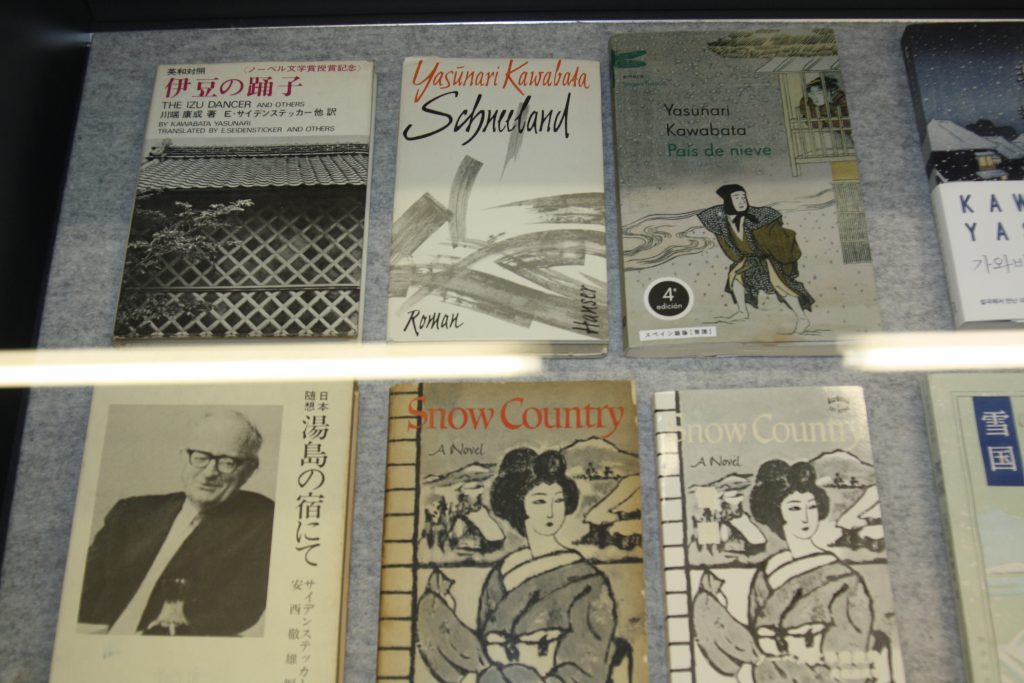
All about Yukiguni- the Snow Country novel
Snow Country would end up being one of the novels for which YASUNARI KAWABATA would become best known. The novel has achieved renown both in Japan and the West, and even has a following in other Asian nations such as Korea and Taiwan. Snow Country was written in serial format and revised a number of times before its full publication in 1948, and was first translated into English approximately a decade later. As YASUNARI KAWABATA was not from Yuzawa, one of his primary sources for research was Bokushi Suzuki’s Snow Country Tales. KAWABATA is said to have visited Yuzawa for the first time in 1934, and experienced traveling through the Shimizu Tunnel which became the famous first line of his novel. He chose to stay at the Takahan Ryokan, the oldest existing inn in Yuzawa and now a premier eco-lodge. The room where YASUNARI KAWABATA wrote his novel is called “Kasumi no Ma,” and has been preserved exactly how it was back then.
After YASUNARI KAWABATA’s novel became an international hit, his subsequent successes led to him receiving Japan’s Order of Culture in 1961. Then, in 1968, in celebration of his literary achievements, YASUNARI KAWABATA was awarded the Nobel Prize for Literature, the first Japanese writer to receive this honor. The story of Snow Country remained with KAWABATA his whole life, and shortly before his passing he rewrote the tale as a short story. YASUNARI KAWABATA visited Yuzawa a handful of times before his death in 1972.
All about Yukiguni- The award-winning Snow Country film!
After Snow Country’s publication and subsequent success, it was made into a feature film in 1957. This film version stars Keiko Kishi as Komako, who previously acted in works by Akira Kurosawa, and went on to star in “Kwaidan,” as well as the works of other acclaimed directors such as Kon Ichikawa. Her later roles include supporting roles in “Twilight Samurai” and the live action adaptation of “Grave of the Fireflies.” Leading man Ryo Ikebe had appeared in the works of Yasujiro Ozu and Senkichi Taniguchi, and a variety of action and crime films. The film was helmed by famous director Shiro Toyoda, known for his movie adaptations of some of Japans most important 20th century novels, such as those by Junichiro Tanizaki and Ogai Mori. This film adaption of Snow Country won awards and was entered into the Cannes Film Festival, and has been regularly shown abroad, such as at the Museum of Modern Art in New York City. Guests in Snow Country can enjoy their own showing at Takahan.
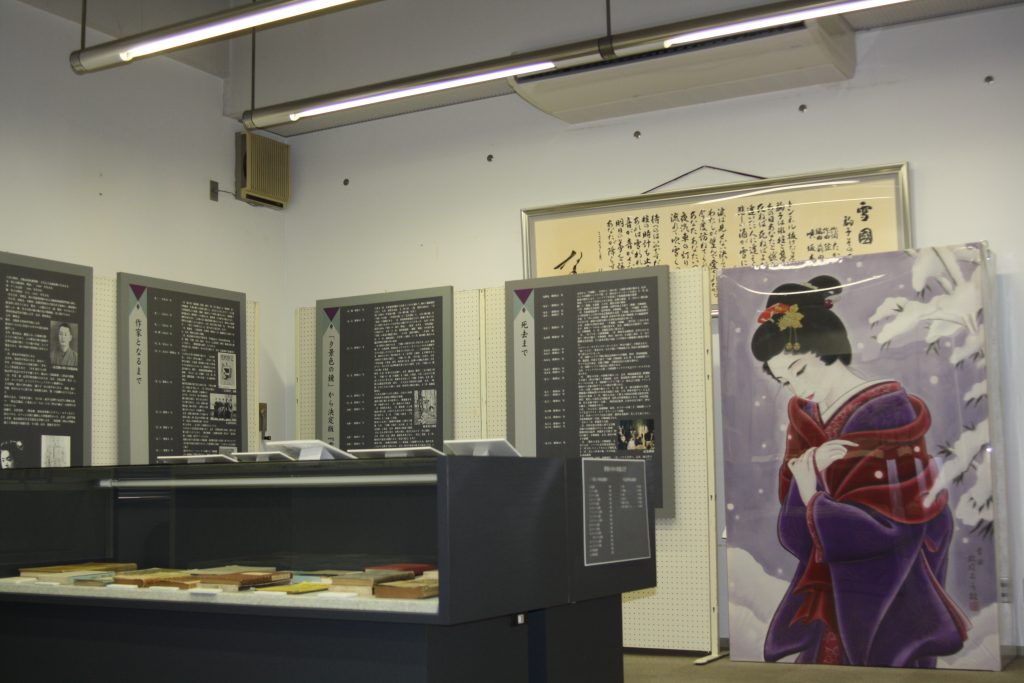
A tour of the new Yukigunikan
Originally named the “Yuzawa Museum of History and Folklore,” this museum is typically known as the Yukigunikan. It was first created back in 1983 with the aim of introducing the history and traditional lifestyles of people from Yuzawa. Over time, more and more was added to the museum- including the exhibits dedicated to YASUNARI KAWABATA and his novel- from which the museum now derives its name.
The new Yukigunikan Museum, also known as the “Yuzawa Snow Country Museum” in English, is made up of three floors. The first floor contains a fine art gallery that showcases a unique collection of painted works depicting scenes from the Snow Country novel by many contemporary Japanese painters of note, including originals by Tatsuo Takayama, Katsusuke Sakane and Susumu Maki. Other items on display are YASUNARI KAWABATA’s personal effects, such as kimono, calligraphy, and sake cups. For other places to view art depicting the Snow Country region, check out an overview of the Tomioka White Museum HERE.
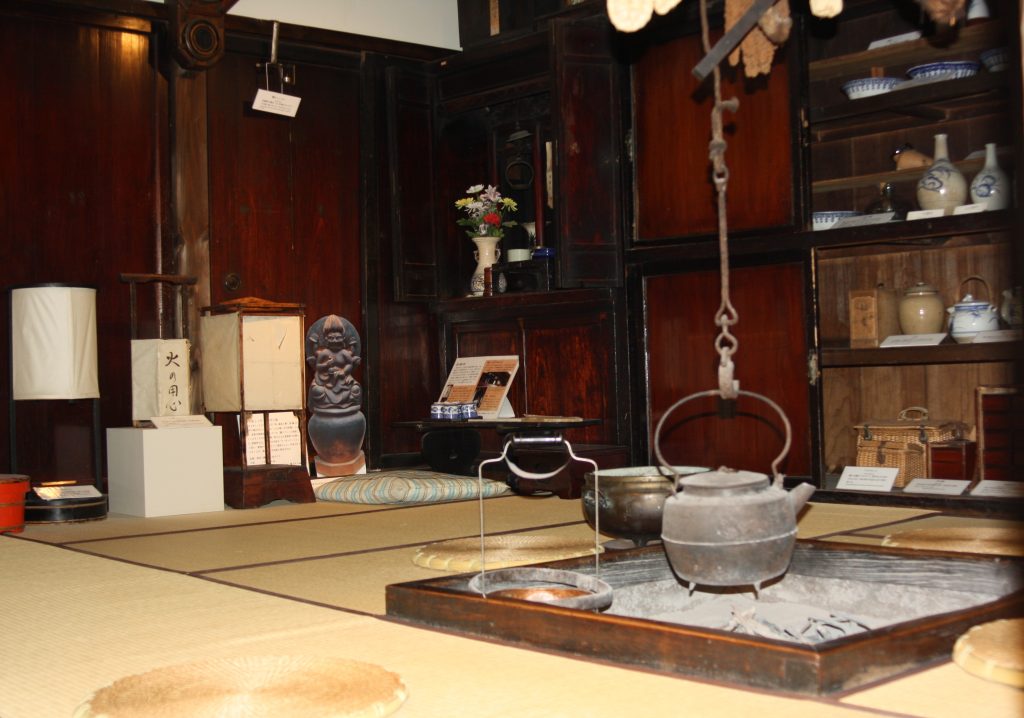
Take a visit to Komako’s House
On the 2nd floor of the Yukigunikan Museum you can find the entire interior of a traditional wooden kominka house. Here you can get a sense of what Yuzawa was like before it was a hot ski destination: Inside the house are antique ceramic dishes, pots, futons, old clocks, and lamps. There is also a family shrine in a place of honor. Another trademark of these kominka houses is a fire pit called an irori. These irori were multifunctional and had an important social function for rural agricultural families in this area. You can also see a mino coat made of “wara” (carex grass) that were used in winter because they were water resistant. For more information about kominka click HERE.
But wait, there’s more: This room, known as Komako no Heya, or “Komako’s House” is said to have been used by a local geisha named Matsue. YASUNARI KAWABATA met Matsue sometime during the writing of his novel, and she is commonly thought to have been the inspiration for the character of Komako in the novel.
Lastly, this floor also features paintings by the esteemed children’s author Shiro Kawakami. Kawakami illustrated the Japanese versions of children’s classics such as Aladdin and Ali Baba and the 40 Thieves. His paintings at Yukigunikan depict local life in the town- Kawakami ended up moving to Yuzawa around the time of World War 2 and remained here for the rest of his life.
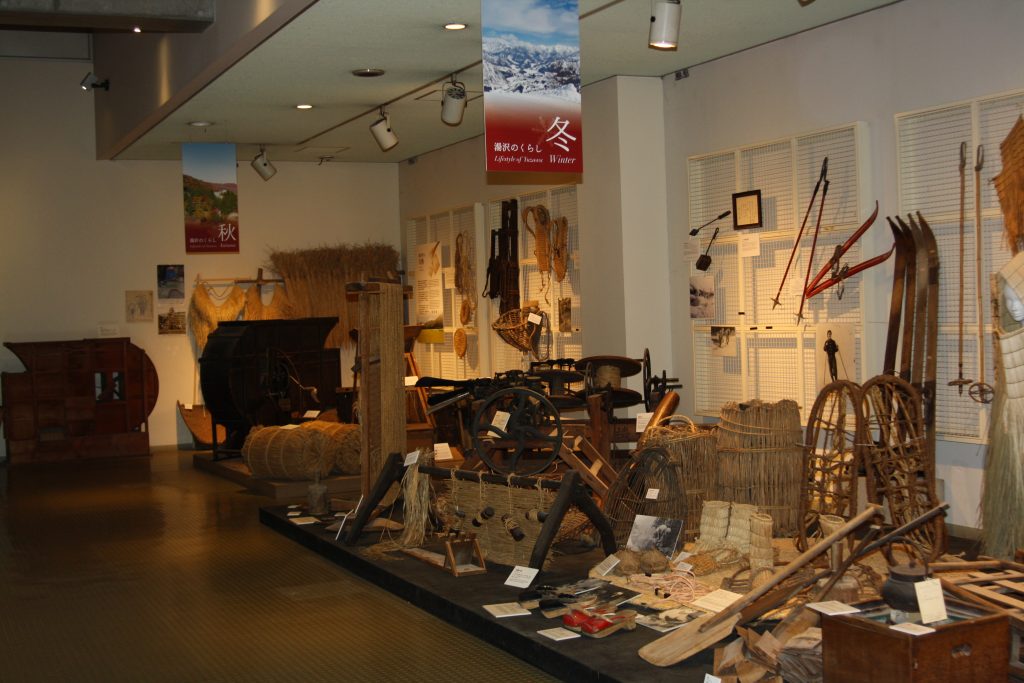
Learn about Yukiguni in Yukiguni
The vast majority of the exhibits at the Yukigunikan Museum are located on the third floor. The highlight is, of course, the exhibition dedicated to the works of YASUNARI KAWABATA. You can see books published in many languages in many different editions. There is also an area dedicated to the movie, with movie production stills that tell the story of the film as well as pictures of YASUNARI KAWABATA around Yuzawa during filming. All over the room are shelves full of reference material about KAWABATA.
The rest of the museum showcases the full history of this town, starting from the Jomon period, with examples of pottery known as “kaengata.” This area was once home to large Jomon settlements. Later on, Yuzawa was a quiet backwater along the Mikuni Kaido- an important road for reaching the ancient capital of Edo. Relics from this time include maps and scrolls, lacquerware, old prayer stones, and a treasure trove of 270,000 old coins excavated here, thought to possibly have a connection to the legendary warlord Kenshin Uesugi.
Other aspects of Yuzawa’s rural way of life on display include the town’s discovery of a hot spring by a predecessor of the same innkeeper in whose inn YASUNARI KAWABATA stayed centuries later. There is also the story of snow in YUKIGUNI, from ancient times to the present day with invaluable old photos, and even old skis and kanjiki snowshoes. Other topics include bear hunting, tools for planting rice, and making silk. The Yukigunikan Museum is now barrier free, and utilizes AR tech for translating exhibits, and occasionally special exhibits using projection mapping. At the Yukigunikan Museum, visitors can see the Snow Country in even greater detail than what was known to YASUNARI KAWABATA back in the day.
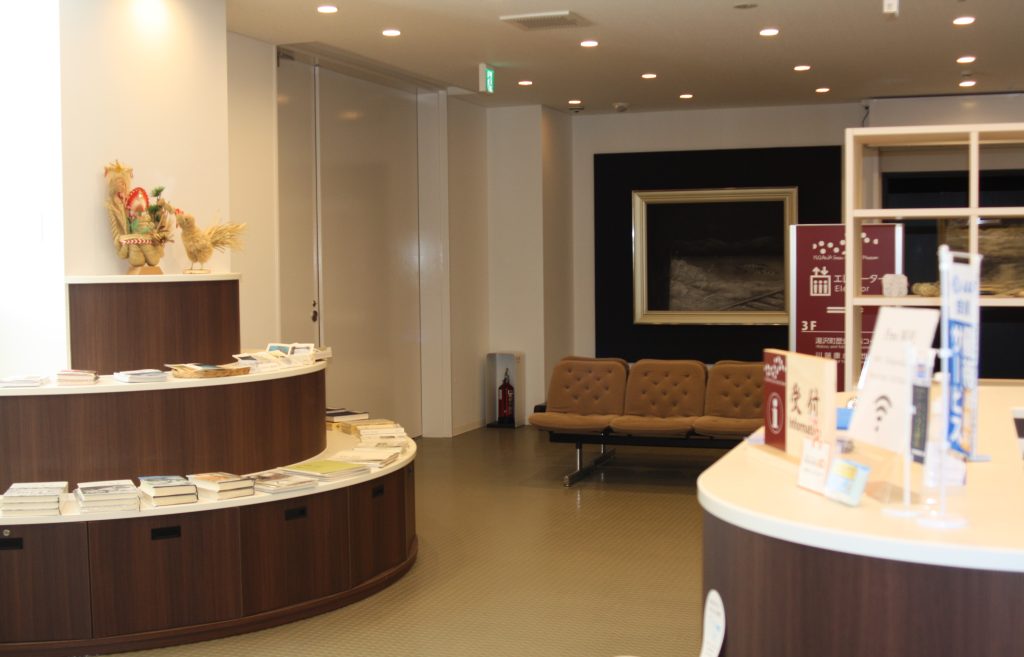
Information for Travelers
Yukigunikan Museum
Address: 354-1 Yuzawa, Minamiuonuma District, Niigata Prefecture 949-6101
Cost: 500 yen for adults, 250 yen for children. Group discounts are available
Open 9:00 a.m. to 5:00 p.m., closed Wednesday

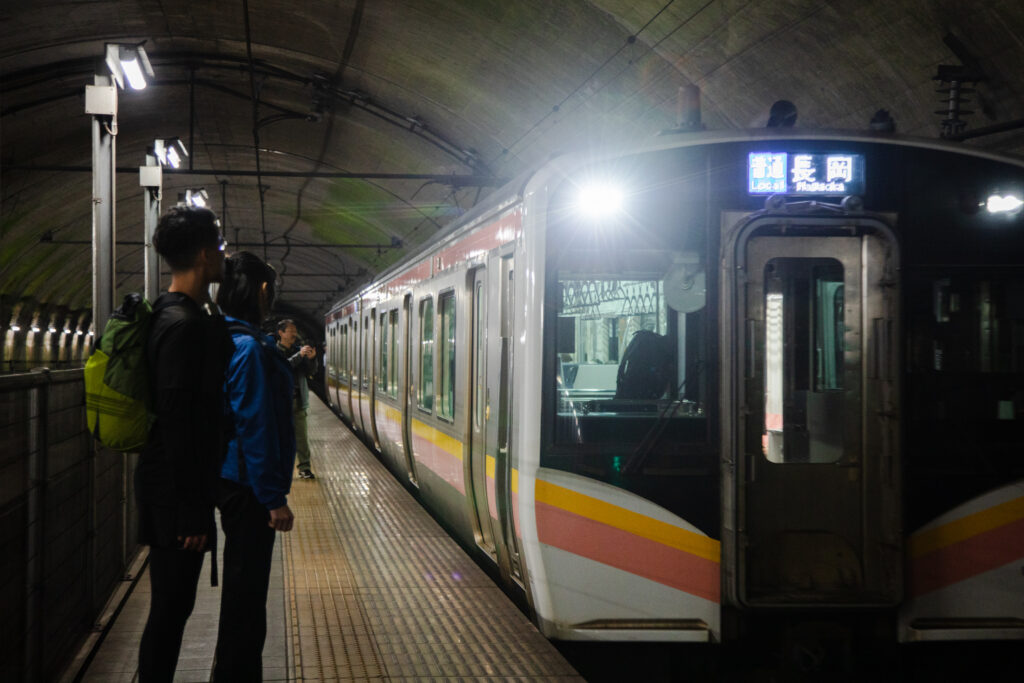
-1024x626-2.jpg)
